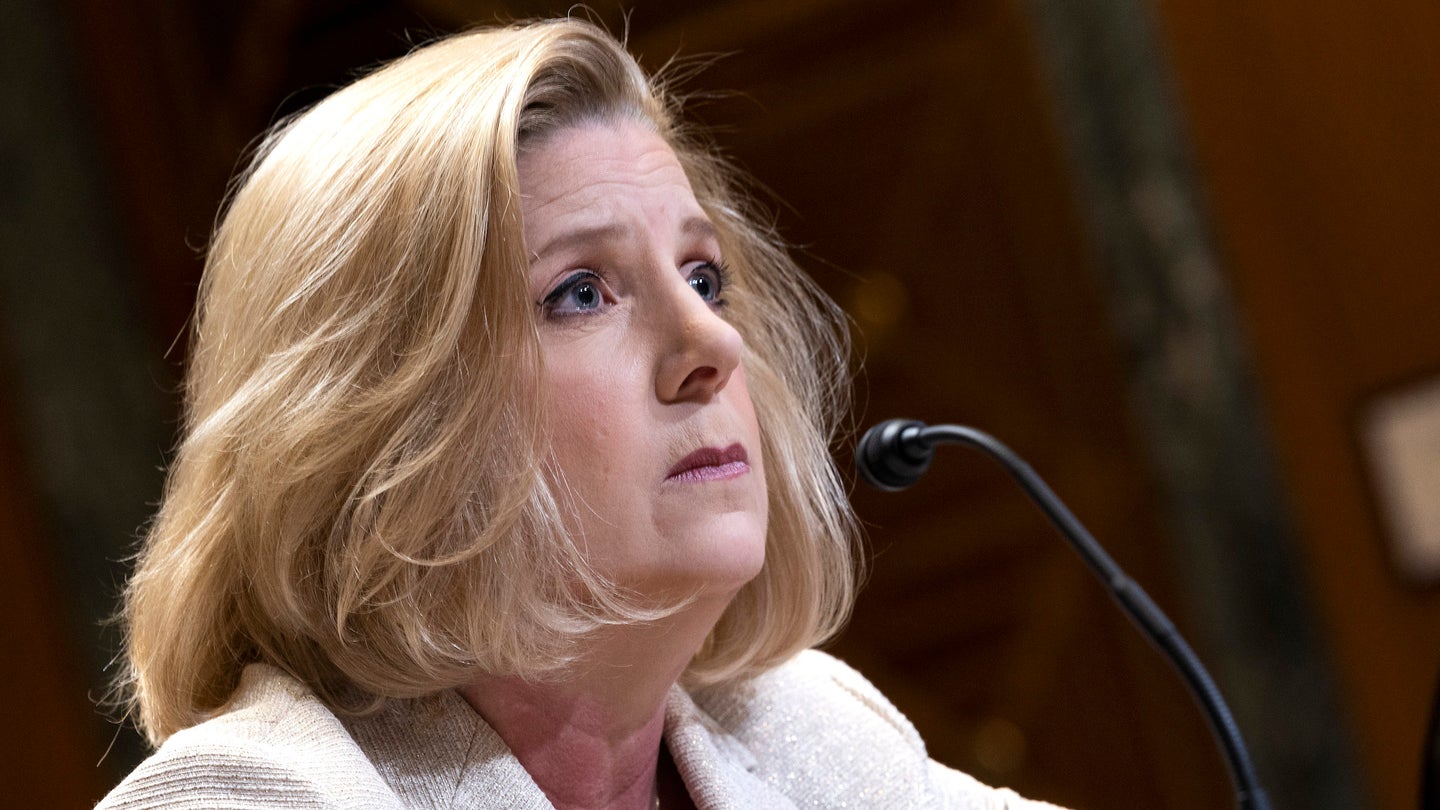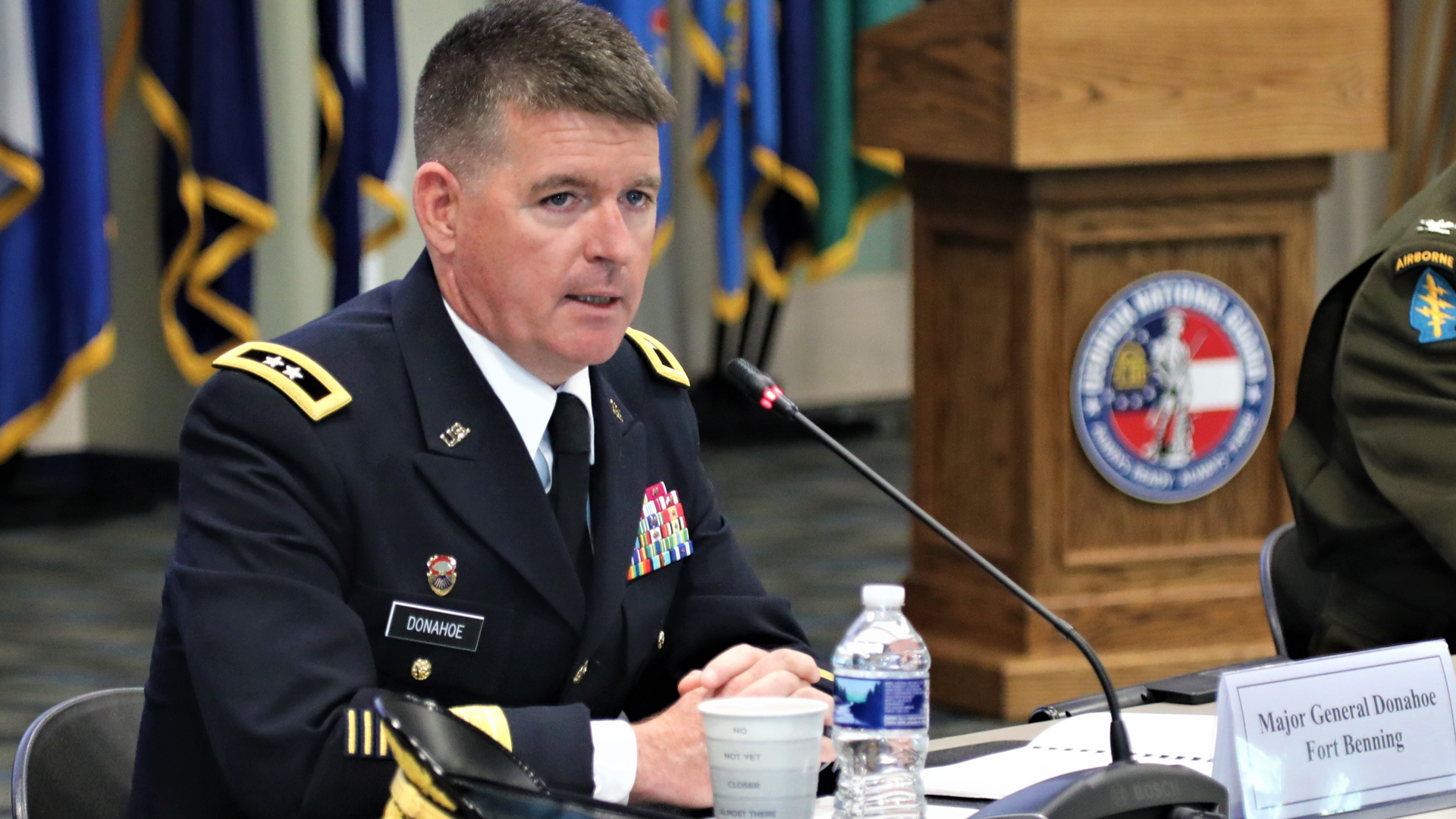Army Secretary to leaders: stay out of online ‘culture wars’
Army Secretary Christine Wormuth also pushed back against the characterization that the Army is “woke.”

Just days after an investigation into a general officer ignited fierce debate over the Army’s ability to engage on social media, service leaders walked a tightrope on Monday by encouraging leaders to engage with the broader public but discouraging them from debating anything that could be perceived as political.
During a press conference on Monday at the annual Association of the U.S. Army meeting in Washington, D.C., Army Secretary Christine Wormuth stated that general officers should be present on social media but avoid getting pulled into “the inflammatory kind of environment that, frankly, Twitter really lends itself to.”
“One of the things I think that’s most important to [Army Chief of Staff] Gen. [James] McConville and I is keeping the Army apolitical and keeping it out of the culture wars,” she said. “Because frankly, we have got to be able to have a broad appeal. When only 9% of kids are interested in serving, we have got to make sure that we are careful about not alienating wide swaths of the American public to the Army.”
Subscribe to Task & Purpose Today. Get the latest military news, entertainment, and gear in your inbox daily.
Wormuth’s response comes just days after Task & Purpose reported the details of an Army Inspector General investigation of Maj. Gen. Patrick Donahoe, formerly the commander of the Maneuver Center of Excellence at Fort Benning, Georgia.
Investigators said in the report that Donahoe’s public Twitter sparring with right-wing Fox News host Tucker Carlson, as well as a conservative provocateur who criticized the military’s novel coronavirus (COVID-19) vaccine mandate for U.S. service members, brought too much negative attention to the force.
The existence of the investigation into Donahoe, which has delayed his planned retirement, was first reported by Army Times.
“While potentially admirable,” the Army IG report says, “[Donahoe’s] post brought a measurable amount of negative publicity to the Army, enough that [the Office of the Chief of Public Affairs] warned [the Secretary of the Army] of the fallout.”
While Donahoe was not the only Army general officer or leader to criticize Carlson — who stated that the U.S. military was becoming “more feminine” because of policies geared towards women in uniform — though his comments specifically were called out in a letter to Defense Secretary Lloyd Austin from Sen. Ted Cruz (R-Texas).

The IG investigation went beyond Donahoe’s comments to Carlson, touching on allegations of toxic and counterproductive leadership which investigators said were unfounded. The report also examined Donahoe’s public communications on Twitter with junior officers: investigators substantiated an allegation that Donahoe “failed to display Army values and core leader competencies,” and violated a Training and Doctrine Command policy that prohibits training cadre from having personal relationships with students through his public tweets to subordinates.
But service members — men and women alike — immediately took issue with the report’s comments criticizing Donahoe for bringing “negative publicity” to the Army by confronting Carlson over his comments about women. As Military.com reported, many servicewomen took the IG’s report as a sign that they would not be supported if partisan figures like Carlson went after them again.
“Intentionally or not, this whole thing showed women that we are not worth defending,” a noncommissioned officer told Military.com. “If he can get slapped for this, why would anyone defend women in public?”
Asked on Monday about the Army’s message to female soldiers who might feel that the service won’t have their back anymore, Wormuth said she does “not want soldiers, whether it’s women or whether it’s soldiers from other communities to feel alienated.”
“We always want to have the backs of our soldiers,” Wormuth said. “I think there are ways to do that that are more effective than others … I think there is absolutely a way to stand up for our soldiers and have their back, but I think the key really is tone and looking at your audience.”
Wormuth also pushed back against the characterization that the Army is “woke” — a label that conservative lawmakers, media personalities, and news outlets have repeatedly placed on the service and military as a whole because of its diversity and inclusion policies.
“You know, we get criticized sometimes for being ‘woke.’ I’m not sure what woke means, I think woke means a lot of different things to different people,” Wormuth said “But first of all, I would say if ‘woke’ means we are not focused on warfighting, we are not focused on readiness — that doesn’t reflect what I see at installations all around the country or overseas when I go and visit.”
“I think we do have a wide range of soldiers in our Army and we’ve got to make them all feel included, and that’s why a lot of our diversity, equity, and inclusion programs are important,” she added.
The latest on Task & Purpose
- Once again, the Navy has a new uniform for sailors
- Army investigation blames general for ‘negative publicity’ after defending servicewomen online
- Turns out that Russian recruiting video loved by critics of the ‘woke’ US military was total BS
- This armored brigade is now the most modernized in the Army
- Lawmakers want to replace ‘thank you for your service’ with something even more meaningless
Want to write for Task & Purpose? Click here. Or check out the latest stories on our homepage.
